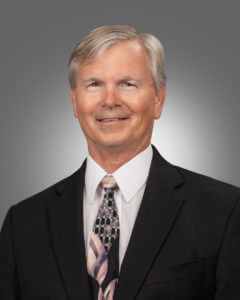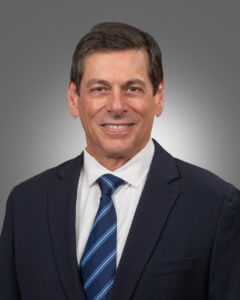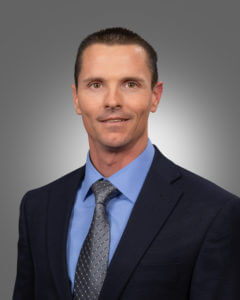Cataracts & Cataract Surgery
At Eye Specialists of Mid-Florida, our surgeons prioritize precision and excellence in cataract surgery to ensure the best visual outcomes for our patients. To offer maximum benefit, we provide laser-assisted cataract surgery that is gentle, more accurate, and enhances patient safety. We highly recommend this option for good candidates, but traditional manual surgery remains a fantastic alternative that can also deliver excellent results. Plus, this is an outpatient procedure carried out in our Sebring or Winter Haven locations. Call us to schedule your cataract evaluation at 800-282-3937.

Cataract FAQs
What is a cataract?
A cataract – it’s a cloudiness of the crystalline lens inside the eye. As the lens gets cloudier, the vision becomes more blurred. Think of it like a camera lens, the dirtier it gets, the blurrier the picture.
When a patient’s vision becomes severely blurred and interferes with their daily routine, cataract surgery is necessary to restore good vision. But before the surgery, the eye must be carefully examined to diagnose other factors that contribute to vision loss. The retina, especially the macula, must be thoroughly checked to ensure that their degeneration has not caused or contributed to any loss of vision. The eye must also be evaluated for corneal diseases or glaucoma, which can significantly impact the patient’s vision.
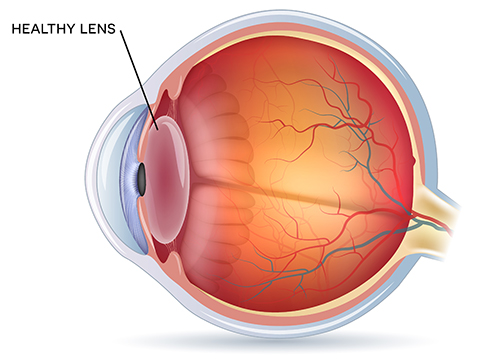
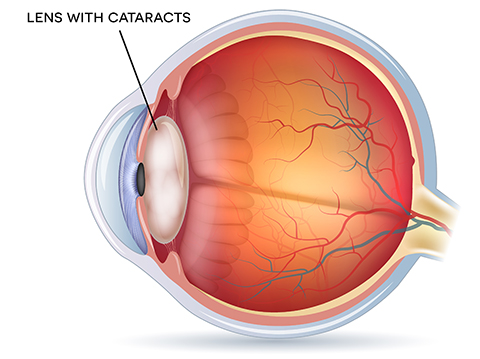
But why do cataracts develop?
Well, aging certainly plays its part and is by far the most common cause of cataracts. The center of the lens gradually goes through a process of dehydration and hardening, which results in sclerosis. This sclerosis is accompanied by the clouding of the lens, or cataracts, which is present in virtually everyone over 70 years of age. Other less common causes of cataracts include eye injuries, chronic systemic diseases, toxic substances, and familial cataracts.
How fast do cataracts develop?
Cataracts develop at different rates in different people. Nuclear cataracts are associated with age and often progress slowly, over many months or years. Other cataracts can develop more quickly, within weeks or months, and can significantly reduce vision.
What are the beginning signs of a cataract?
Gradually increasing blurriness of vision, diminishing colors, and sensitivity to bright light and vision at night. Cataracts usually appear in both eyes, but more noticeable in one than the other. Cataracts don’t cause sudden decreases in vision, pain, itching, fluctuating vision, or redness of the eye. So, if you experience any of these symptoms, it’s best to visit an eye doctor promptly.






Can cataracts be reversed or prevented?
Research is underway; however, at present no measures that reverse existing cataracts are known. Also, no treatment is known that will prevent cataracts from forming except in rare instances of hereditary infantile cataracts. The only treatment for cataracts is the surgical removal of the cloudy cataract coupled with lens implant surgery to restore proper focus to the eye. On the bright side, modern surgical advances make cataract removal a very successful procedure.
Ask Us
If you’re considering cataract surgery, here are a few questions you may want to discuss with our eye doctors.
- Which type of replacement lens is best for my needs?
- How much does cataract surgery cost?
- How can I prepare my family or caregiver to help me throughout the surgical process?
- Will any of the prescriptions I’m taking complicate the surgical process?
- Will any of my pre-existing conditions affect the surgery?
- What kinds of risks are there?
When should cataract surgery be performed?
While it’s not usually considered urgent, there are rare instances where it becomes necessary as an emergency operation due to the cataract causing severe inflammation or glaucoma. Also, if the development of a cataract makes it difficult for your doctor to treat other eye conditions, they may suggest proceeding with cataract surgery. When it is time for surgery, patients can expect quick visual recovery due to the intraocular lens implants.
The decision to have surgery is mostly based on your visual requirements and how it is affecting your daily life. Once you experience difficulty performing tasks, driving, enjoying hobbies, or with reading, you might decide it is time to choose surgery.
If you live in the Auburndale, Clermont, Haines City, Lakeland, Lake Wales, Sebring, Winter Haven, or surrounding areas and suspect a cataract, schedule a Cataract Evaluation Consultation at Eye Specialists of Mid-Florida, P.A. today by calling 800-282-3937. Our experts will help determine if cataract surgery is right for you.
You now have a choice on how you see after cataract surgery.
Select the lens option that will best fit your vision needs.
At Eye Specialists of Mid Florida, we understand that the surgical procedure and lens implant you select can greatly affect your day-to-day life. That’s why we offer a variety of options to help you find the perfect fit for your lifestyle and budget. During your evaluation, our eye doctors and staff will thoroughly discuss your options with you, but we also give you ample time to carefully contemplate your choices. Imagine the freedom of seeing clearly again and your new enhanced lifestyle without cataracts.
Lens Implant Options
- Standard (covered by insurance)
- Specialty lens options (not covered by any insurance, extra out-of-pocket expense)
- Custom-matched (CMA lens)
- Blended Vision
- Toric Astigmatism Correction
- Toric Blended Vision
- Multi-Focal

